Introduction
Life is unpredictable, and being prepared for any situation can make all the difference. Whether you’re facing a natural disaster, a medical emergency, or simply navigating the challenges of everyday life, having essential survival skills and knowledge can help you stay safe and resilient. In this comprehensive guide, we’ll share essential survival tips for any situation to ensure you’re ready for anything that comes your way.
From building a survival kit to mastering basic first aid, these tips will empower you to handle emergencies with confidence. Let’s dive in and get prepared!
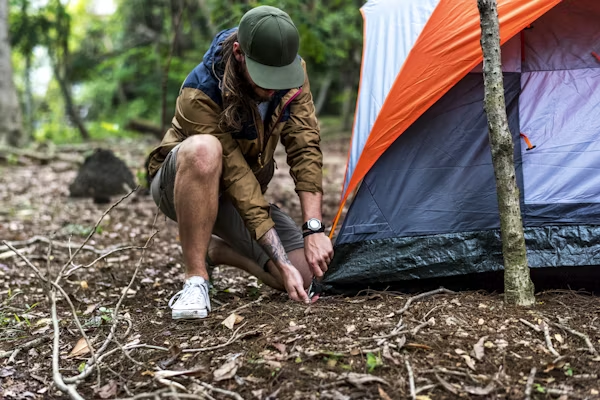
Why Survival Skills Are Important
Survival skills are not just for extreme adventurers—they’re essential for everyone. Here’s why:
- Safety: Knowing how to respond in emergencies can save lives.
- Self-Reliance: Survival skills help you rely on yourself when help isn’t immediately available.
- Peace of Mind: Being prepared reduces stress and anxiety in uncertain situations.
- Adaptability: Survival skills teach you to think on your feet and adapt to changing circumstances.
By learning essential survival tips for any situation, you can face challenges head-on and emerge stronger.
Essential Survival Tips for Any Situation
Here are practical survival tips to help you prepare for emergencies and everyday challenges:
1. Build a Survival Kit
A well-stocked survival kit is your first line of defense in any emergency. Include these essentials:
- Water: At least 1 gallon per person per day for drinking and sanitation.
- Non-perishable food: Canned goods, energy bars, and dried fruits.
- First aid kit: Bandages, antiseptic wipes, pain relievers, and any necessary medications.
- Flashlight and extra batteries: For visibility in the dark.
- Multi-tool or Swiss Army knife: For various tasks like cutting, opening cans, and repairing gear.
- Emergency blanket: To retain body heat in cold conditions.
- Whistle: To signal for help.
- Maps and a compass: For navigation if GPS is unavailable.
- Portable phone charger: To keep your devices powered.
Keep your survival kit in an easily accessible location and check it regularly to ensure all items are in good condition.
2. Learn Basic First Aid
Knowing how to treat injuries can be life-saving. Learn these basic first aid skills:
- CPR and AED use: Essential for cardiac emergencies.
- Stopping bleeding: Apply direct pressure with a clean cloth or bandage.
- Treating burns: Cool the burn with water and cover it with a sterile dressing.
- Handling fractures and sprains: Immobilize the injured area and apply ice to reduce swelling.
- Recognizing shock and heatstroke: Look for symptoms like pale skin, rapid breathing, or confusion, and take appropriate action.
Consider taking a certified first aid course to gain hands-on experience and confidence.
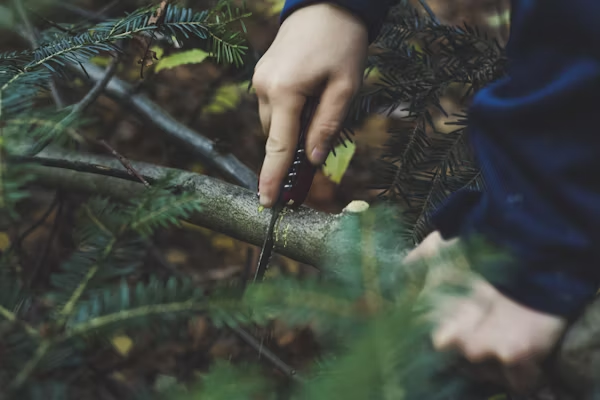
3. Find and Purify Water
Water is essential for survival. Learn how to:
- Locate water sources: Look for rivers, lakes, or rainwater.
- Purify water: Use boiling, water filters, or purification tablets to make water safe to drink.
In urban settings, tap water may become contaminated during emergencies, so having a portable water filter or purification tablets is crucial.
4. Start a Fire
Fire provides warmth, light, and a way to cook food. Practice these fire-starting methods:
- Matches or lighter: Always carry waterproof matches or a windproof lighter.
- Flint and steel: A reliable method for creating sparks.
- Fire pit construction: Arrange tinder (dry grass, paper), kindling (small sticks), and fuel wood (larger logs) to build a sustainable fire.
Fire-starting skills are especially important in cold climates or during extended outdoor stays.
5. Build a Shelter
Protect yourself from the elements by learning how to build a shelter:
- Natural materials: Use branches, leaves, and rocks to create a sturdy structure.
- Lean-to or A-frame shelter: Simple designs that provide quick protection from wind and rain.
In urban environments, identify safe locations like basements or reinforced structures during disasters.
6. Navigate Without Technology
If you lose GPS or phone service, these skills can help you find your way:
- Map and compass: Learn to read topographic maps and use a compass to determine direction.
- Natural navigation: Use the sun, stars, or landmarks like rivers and mountains to orient yourself.
Practice these skills in familiar areas before relying on them in emergencies.
7. Forage for Food
In survival situations, knowing how to find edible plants and insects can be crucial:
- Edible plants: Learn to identify safe plants like dandelions, clover, and berries.
- Avoid toxic plants: Steer clear of unfamiliar plants and mushrooms unless you’re certain they’re safe.
Foraging should be a last resort—always prioritize your survival kit supplies.
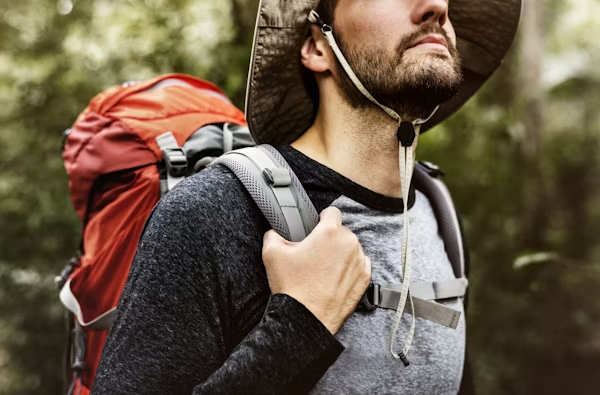
8. Stay Calm and Think Clearly
Panic can cloud your judgment. Practice these mental strategies:
- Deep breathing: Calm your mind and body by taking slow, deep breaths.
- Assess the situation: Evaluate your surroundings and identify immediate threats.
- Prioritize actions: Focus on solving one problem at a time, starting with the most critical.
Mental resilience is just as important as physical preparedness.
9. Signal for Help
If you’re lost or in danger, use these methods to signal for help:
- Smoke signals: Create thick smoke by adding green leaves or damp materials to a fire.
- Whistle or mirror: Use sound or reflected light to attract attention.
- SOS signs: Spell out “SOS” with rocks, branches, or other materials in an open area.
These signals can significantly increase your chances of being rescued.
10. Prepare for Specific Emergencies.
Tailor your survival skills to the risks in your area:
- Earthquakes: Secure heavy furniture, know safe spots in your home, and practice “Drop, Cover, and Hold On.”
- Floods: Move to higher ground, avoid walking through floodwaters, and have an evacuation plan.
- Wildfires: Create a defensible space around your home, keep important documents ready, and know evacuation routes.
Everyday Survival Tips
Survival skills aren’t just for extreme situations—they can also help you navigate daily life:
- Financial Preparedness: Build an emergency fund to cover unexpected expenses like medical bills or job loss.
- Home Safety: Install smoke detectors, carbon monoxide alarms, and fire extinguishers. Regularly check and maintain these devices.
- Health and Fitness: Stay active and maintain a healthy diet to build physical resilience.
- Communication: Keep a list of emergency contacts and know how to reach loved ones during a crisis.
Real-Life Survival Stories
Here are some inspiring examples of people who used survival skills to overcome challenges:
- Aron Ralston: Survived a hiking accident by amputating his own arm and navigating to safety.
- Juliane Koepcke: Survived a plane crash in the Amazon rainforest and walked to safety after 11 days.
- Ernest Shackleton: Led his crew to survival after their ship was trapped in Antarctic ice.
These stories highlight the importance of preparation, resilience, and adaptability in survival situations.
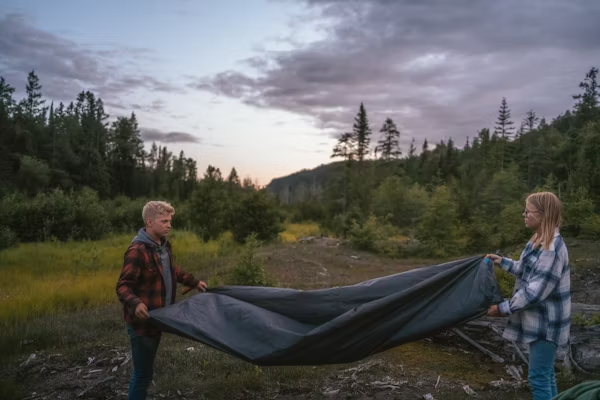
Conclusion
Being prepared for any situation is about more than just having the right tools—it’s about having the knowledge, skills, and mindset to face challenges head-on. By following these essential survival tips for any situation, you can stay safe, resilient, and ready for anything life throws your way.
So, start building your survival kit, practice these skills, and empower yourself to handle emergencies with confidence. Remember, preparation is the key to survival!
FAQs
- What should I include in a survival kit?
Essentials include water, food, a first aid kit, flashlight, multi-tool, and emergency blanket. - How can I purify water in the wild?
Boil water, use a portable filter, or add purification tablets. - What’s the best way to start a fire without matches?
Use flint and steel, a magnifying glass, or friction-based methods like a bow drill. - How do I stay calm in an emergency?
Take deep breaths, assess the situation, and focus on solving one problem at a time. - What are the most important first aid skills to learn?
CPR, stopping bleeding, treating burns, and recognizing shock are critical. - How can I prepare for natural disasters?
Create an emergency plan, build a survival kit, and stay informed about risks in your area. - What’s the best way to signal for help?
Use smoke signals, a whistle, or a mirror to attract attention.

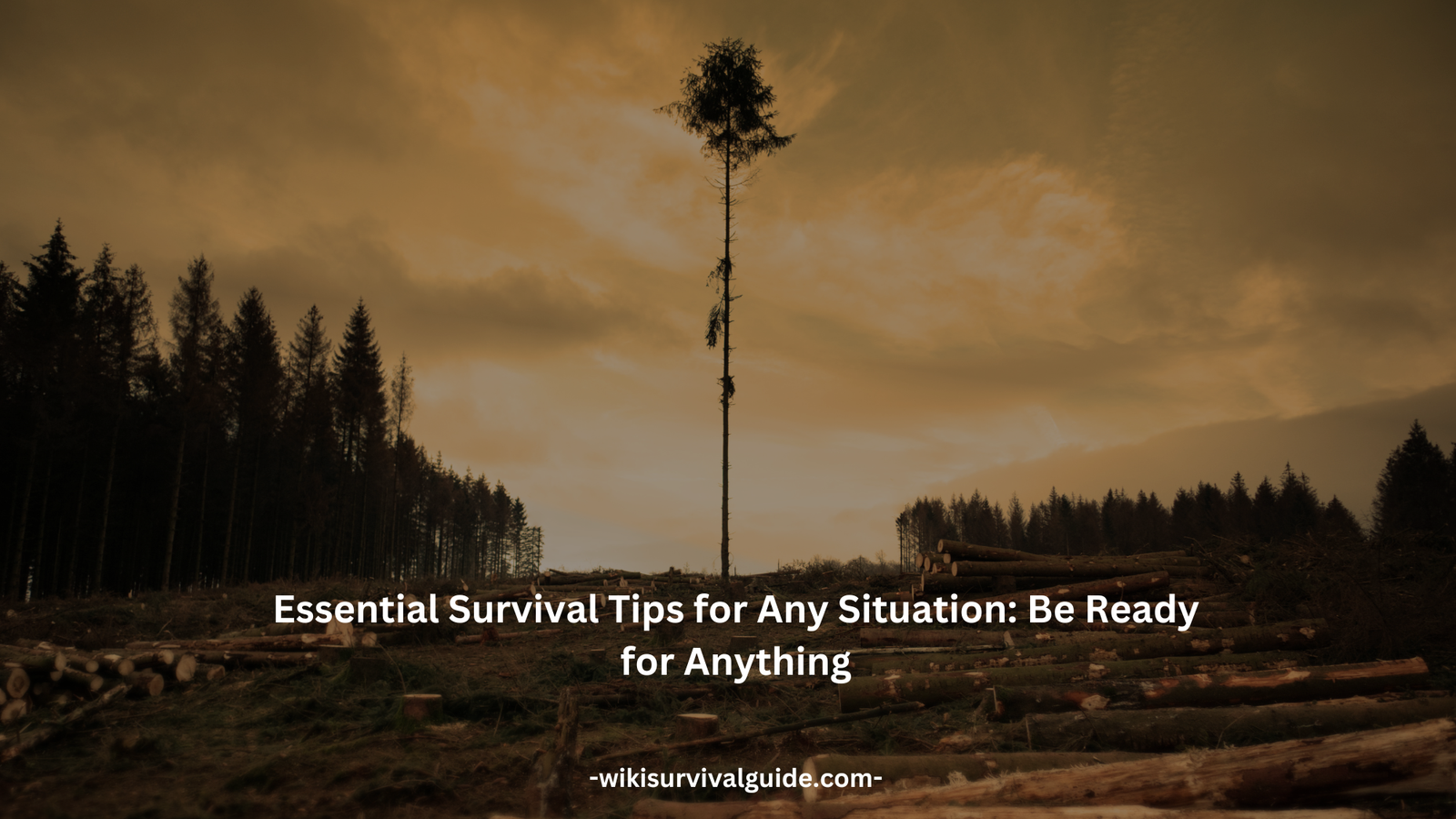

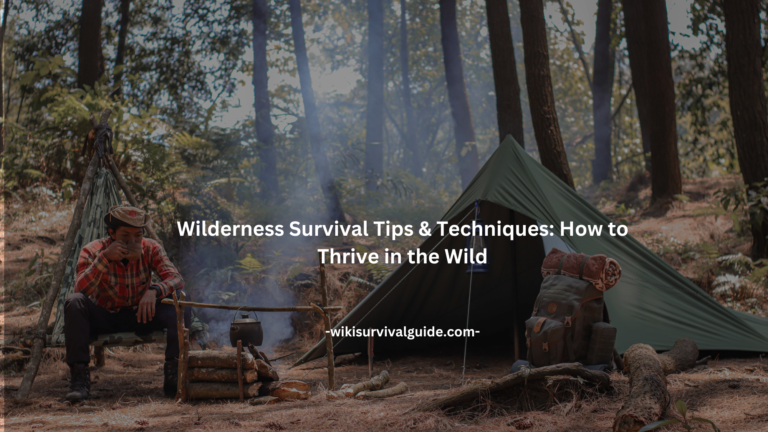
Leave a Comment